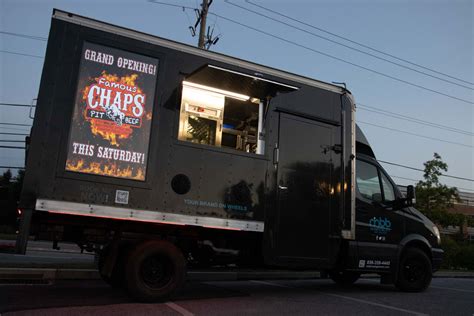Avoid Overspending on Food Truck Rental: A Comprehensive Guide
The allure of owning a food truck is undeniable: culinary freedom, mobile business potential, and the vibrant energy of a bustling street scene. However, the initial investment, particularly the cost of renting a food truck, can quickly spiral out of control if you're not careful. This comprehensive guide will help you navigate the complexities of food truck rentals and avoid unnecessary expenses, ensuring your entrepreneurial journey starts on a financially sound footing.
What Factors Influence Food Truck Rental Costs?
Several key factors significantly impact the price you'll pay for a food truck rental. Understanding these helps you budget effectively and negotiate favorable terms.
-
Truck Size and Features: Larger trucks with extensive equipment (e.g., multiple ovens, expansive refrigeration) command higher rental fees. Consider your menu's needs; a smaller truck might suffice if you're offering a limited menu. Evaluate features critically: do you really need that extra fryer, or can you streamline your operations?
-
Rental Length: Short-term rentals are generally more expensive per day or week. Longer-term leases usually offer discounts, making them a more cost-effective option for established businesses. Consider your business plan and projected revenue to determine the optimal rental period.
-
Truck Condition and Age: Newer trucks with modern equipment and updated features tend to have higher rental costs. Older trucks, while potentially cheaper, might require more maintenance and repairs, negating any initial savings. Carefully assess the truck's mechanical and operational condition before signing any agreement.
-
Location: Rental prices can vary significantly depending on your location. Urban areas with high demand typically have higher rental rates than less populated regions. Factor in the location's potential customer base and its impact on your profitability when comparing rental costs.
-
Insurance and Permits: Don't overlook these crucial expenses. Rental agreements might include insurance costs, or you might need to secure it separately. Permitting fees vary by location and can add to your overall expenses. Budget accordingly and factor these costs into your overall analysis.
How to Find Affordable Food Truck Rental Options
Finding a cost-effective food truck rental requires thorough research and smart negotiation.
-
Explore Different Rental Markets: Don't limit yourself to local options. Online platforms and national listings can reveal more competitive rates and a broader selection of trucks.
-
Negotiate Rental Terms: Don't hesitate to negotiate rental rates, especially for longer-term leases. Highlight your business plan and potential revenue to demonstrate your commitment and creditworthiness.
-
Consider Used Trucks: Buying a used food truck outright might seem daunting, but it could offer long-term cost savings compared to continuous rentals. Thoroughly inspect any used truck and seek professional advice before making a purchase.
-
Lease-to-Own Options: Some rental companies offer lease-to-own options, allowing you to gradually acquire ownership over time. Carefully review the terms and conditions of any lease-to-own agreement.
-
Explore Franchise Opportunities: Instead of renting or buying a truck independently, consider established food truck franchises. While franchise fees are involved, they often come with proven business models, brand recognition, and potentially lower initial investment.
Frequently Asked Questions (FAQ)
What is the average cost of renting a food truck? The average cost varies significantly depending on the factors listed above. Expect to pay anywhere from a few hundred dollars per week to several thousand per month.
What are the hidden costs associated with food truck rentals? Hidden costs can include maintenance and repairs, insurance premiums, permits and licenses, fuel expenses, and cleaning supplies. Thoroughly evaluate all potential costs before signing a rental agreement.
Can I rent a food truck for a short-term event? Yes, many rental companies offer short-term rentals, ideal for festivals, private events, and pop-up shops. Be aware that short-term rentals usually command higher daily or weekly rates.
What kind of insurance do I need for a rented food truck? You'll typically need commercial liability insurance and possibly other coverage depending on your specific needs and local regulations. Your rental agreement might specify required insurance types.
Where can I find food truck rental listings? Online marketplaces, classifieds websites, and specialized food truck rental companies are excellent resources for finding available trucks. Network with other food truck owners and industry professionals for potential leads.
By carefully considering these factors and diligently researching your options, you can significantly reduce your food truck rental costs and lay a solid financial foundation for your culinary venture. Remember that thorough planning and smart budgeting are essential for success in this competitive industry.

